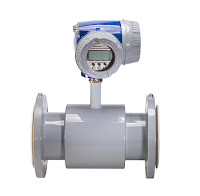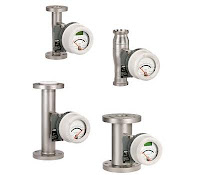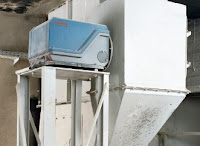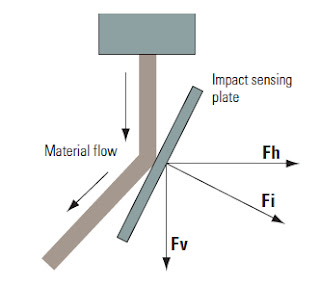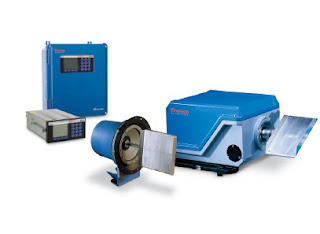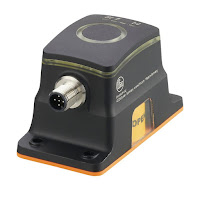In general,
magnetic flow meters are sturdy, reliable devices able to withstand hazardous environments while returning precise measurements to operators of a wide variety of processes. The magnetic flowmeter has no moving parts. Electromagnetic meters will measure virtually any conductive fluid or slurry. This includes process water and wastewater. They provide low pressure drop, high accuracy, high turndown ratio, and excellent repeatability. It is however, necessary to fill the entire cross section of the pipe in order to derive useful volumetric flow measurements.
Electromagnetic flow meters employ Faraday’s law of electromagnetic induction, whereby voltage is induced when a conductor moves through a magnetic field. The liquid acts as the conductor, with energized coils outside the flow tube creating the magnetic field. The produced voltage is directly proportional to the flow rate. Magnetic flow meter technology is not affected by temperature, pressure, or density of the subject fluid.
Electromagnetic flow meters tend to be heavy in larger sizes and may be prohibitively expensive for some purposes. However, irrespective of price and size, there are multiple reasons why magnetic flow meters are the instrument of choice for certain applications. They are resistant to corrosion and their ability to accurately measure dirty fluids makes them very suitable for wastewater measurement. As mentioned, there are no moving parts in a magnetic flow meter, keeping maintenance to a minimum. Power requirements are also low. Electromagnetic flow meters are available in a wide range of configurations, sizes, and construction materials to accommodate various process installation
requirements.
 |
Severe service flow meter.
(TECO) |
Severe application magnetic flow meters provide erosion and abrasion resistant designs, capable of withstanding a variety of highly erosive applications and corrosive slurries. These special-purpose electromagnetic flow meters utilize liners made from specialty materials like magnesia stabilized zirconia ceramic or aluminum oxide ceramic, have electrodes made of exotic metals such as Hastalloy B/C, titanium, platinum, or tungsten carbide, and include specialized coatings.
Contact
Thompson Equipment Company (TECO) with any magnetic flow meter requirement. Their decades of applying, repairing, re-manufacturing, and designing magnetic flow meters will assure a successful implementation.
